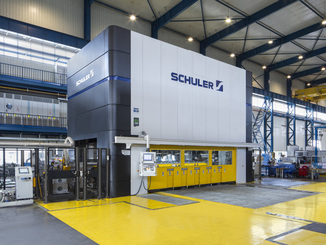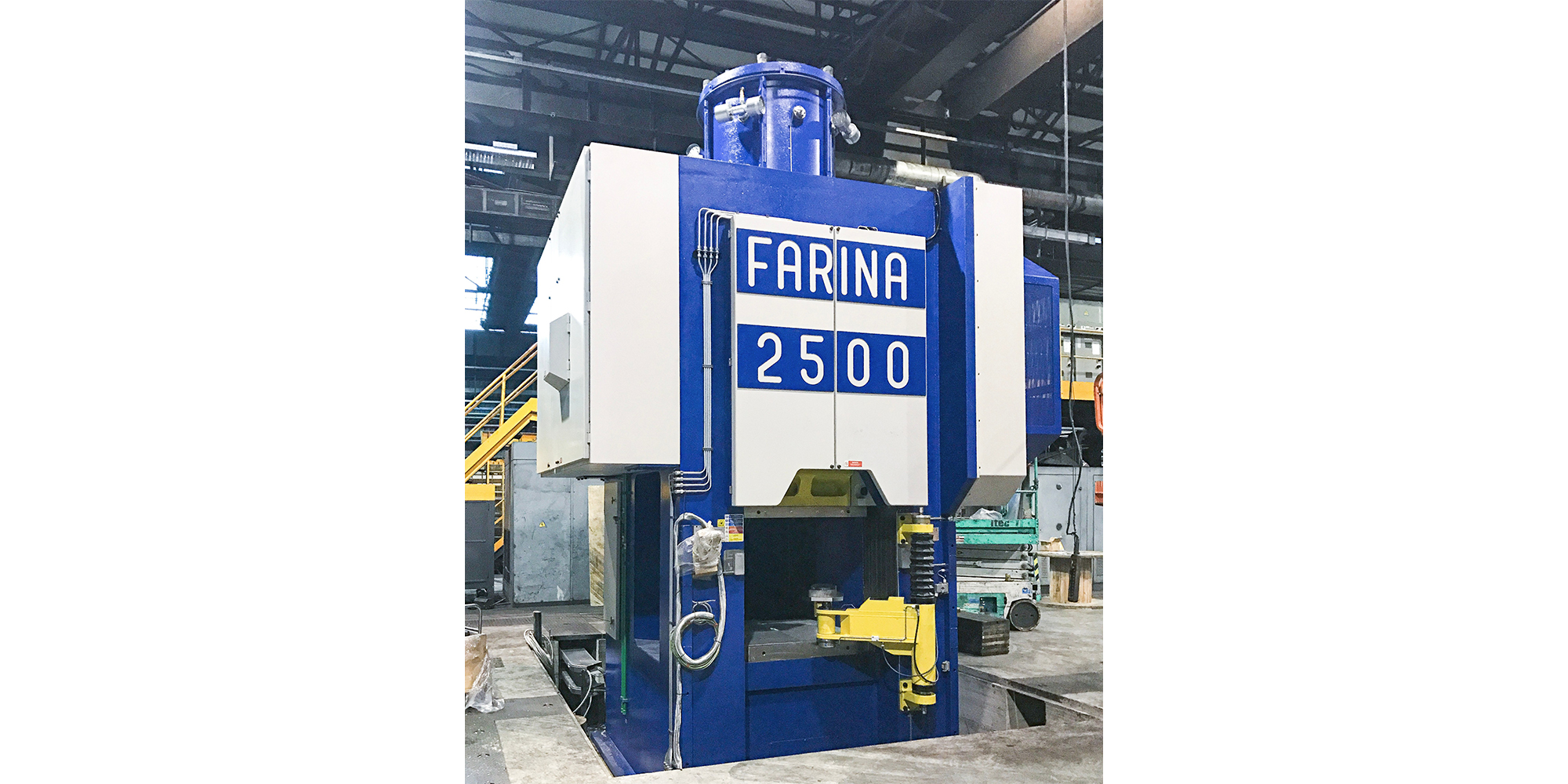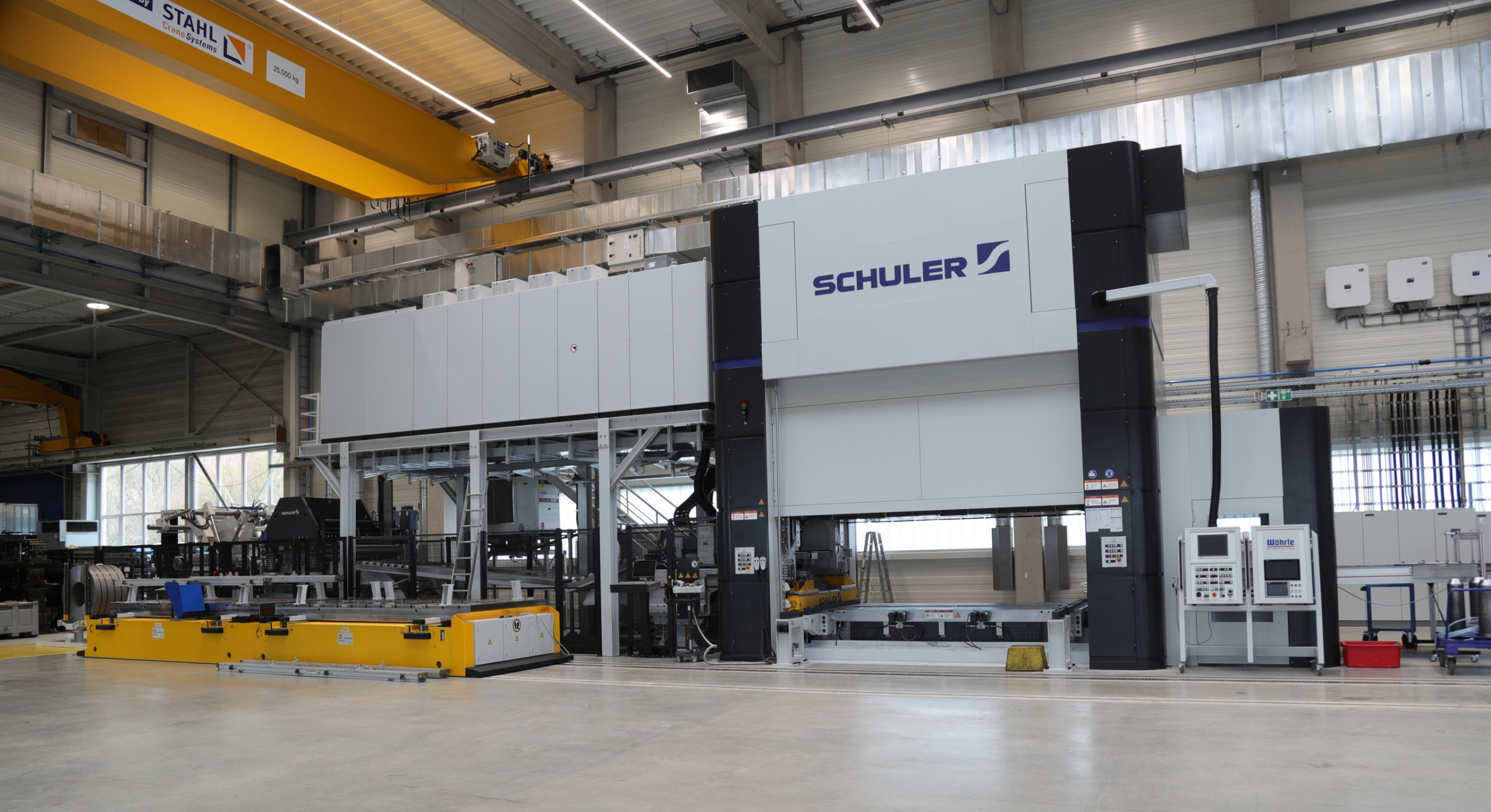
The 10,000 kilonewton Schuler servo press for automotive supplier Wöhrle offers numerous innovative extras.
A coil width of up to 1,300 millimeters with zigzag feed and residual strip processing, a straightening machine with exchangeable straightening cassettes, and a die changing carriage for the press to minimize setup times: The Schuler servo press which Wöhrle has installed at its production site in Krautheim near Heilbronn can boast special features such as these. The versatile MSD 1000 system with table dimensions of 4,000 by 1,800 millimeters thus provides the flexibility the automotive supplier needs to be successful on the market.
“In the automotive industry, all companies are currently undergoing a transformation,” explains Managing Director Michael Fahrenbach. “Everyone is looking ahead, but no one knows for sure what products are coming.” So the more flexible a system, the lower the risk: “The maximum bandwidth of 1,300 millimeters means we can cover an extremely wide range.”
Consequently, there are no typical components for Wöhrle: The spectrum ranges from components for transmissions, battery systems, axles, sound and shock absorbers to air conditioning technology and power electronics. The width of the parts starts at 300 millimeters, and the longest component developed to date measures 1,900 millimeters.
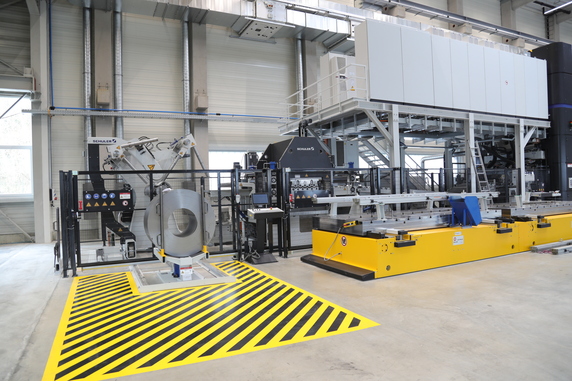
© Wöhrle
Steel, aluminum, stainless steel and copper parts
Thanks to the straightening unit with 17 instead of the usual nine straightening rolls, even demanding material can be prepared in such a way that the resulting products meet high demands in terms of geometry and quality. It doesn’t matter whether it’s made of steel, aluminum, stainless steel or copper – the only requirement is that the supplied sheet must be between 0.9 and six millimeters thick. Schuler’s zigzag feed ensures high material utilization.
Thanks to a special transfer, even the last two to three meters of a coil, which are normally lost in conventional lines, can be used. “In this way, we minimize the amount of scrap,” explains plant manager Ulrich Reustlen.
There was no ready-made solution for such residual strip processing on the market, so Schuler developed it itself without further ado together with Wöhrle. “Resources are scarce around the world,” adds Managing Director Fahrenbach. “By eliminating waste, we do a lot for sustainability.”
Sustainability is a top priority
The scrap that still accumulates is collected by type in three skips, which facilitates subsequent recycling. The minimum lubrication system, which reduces the amount of oil required for the forming process, also contributes to sustainability – as do the heat pump for air conditioning the newly built factory hall and the photovoltaic system on the roof. In a second and third construction phase, space could also be created for another plant.
But back to the latest new acquisition: Among other things, with the help of the die change carts, the complete line can be changed over in just half an hour, and the tryout function provides support for setting up and running in new dies. In order to identify possible collisions in advance and optimize part throughput, Wöhrle has also invested in Schuler’s “DigiSim” simulation software and the associated training for operators and die designers. Effective sound insulation guarantees pleasant working conditions, even directly at the press.
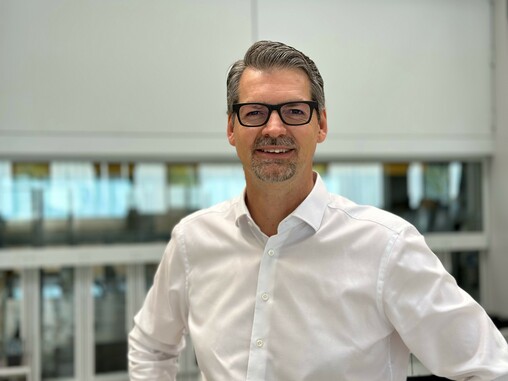
© Wöhrle
“The Schuler can do such a thing”
Incidentally, the conveyor system not only pushes the sheet forward, but can also pull it back a little if necessary. This opens up the possibility of using the press force in the forming process in a more targeted manner and, for example, producing parts that could otherwise only run on a 1,250-ton machine. “It was already clear to us in advance that the Schuler could do something like this,” says plant manager Reustlen. Together with Schuler, Wöhrle developed and integrated the individual functions one after the other: “Team spirit was a key to success.”
Both sides always supported each other with “passion and bite,” as Managing Director Fahrenbach puts it. The result, Reustlen says, “All of our requirements were met.” All the components are perfectly matched to each other, and the control cabinets are mounted above the conveyor system to save space: “It’s a plant that looks like it’s been cast from a single mold.”
Facts & Figures
Schuler offers customer-specific cutting-edge technology in all areas of forming technology – from networked presses to press shop planning. In addition to presses, the product portfolio also includes automation, tools, process know-how and service for the entire metalworking industry. Schuler’s Digital Suite brings together solutions for networking forming technology and is constantly being developed to further improve line productivity and availability. Customers include automotive manufacturers and suppliers as well as companies from the forging, household appliance and electrical industries. Presses from the Schuler Group mint coins for more than 180 countries. Schuler was founded in 1839 at its headquarters in Göppingen (Germany) and is represented by around 5,000 employees at production sites in Europe, China and America as well as service companies in more than 40 countries. The company is part of the international technology group Andritz.


